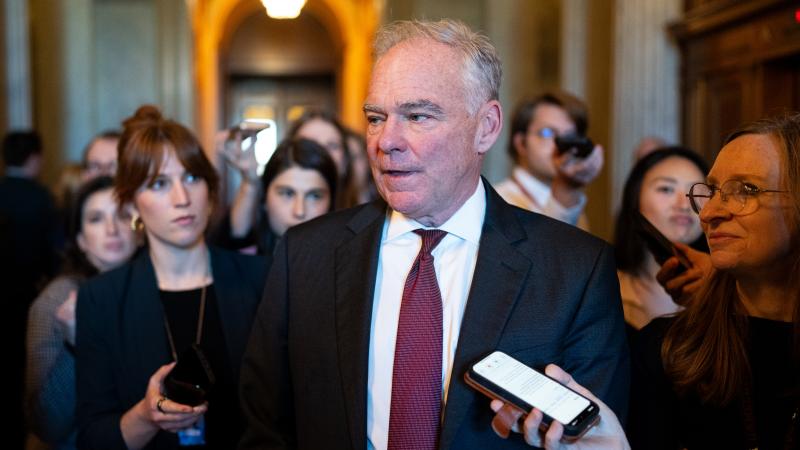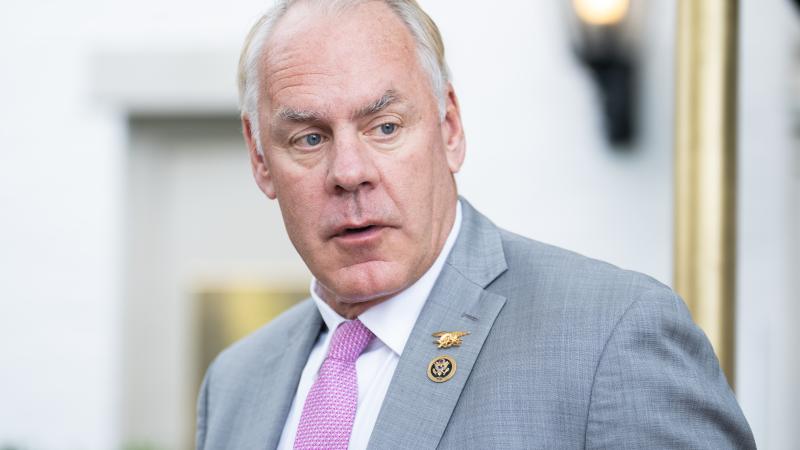U.S. religious divides driving split on Israel-Iran intervention
Attitudes toward Israel (or its establishment) within the Christian population have varied since the early 20th Century.
The prospect of an all-out war between Iran and Israel has American Evangelicals rushing to scripture to argue a biblical case for U.S. intervention on Israel’s behalf, leading to a high-profile religious debate that underscores deep sectarian divides in the U.S. electorate on the issue.
The United States is a Christian-majority country, with Jews representing only a small fraction of the adult population. Attitudes toward Israel (or its establishment) within the Christian population have varied since the early 20th Century.
Protestants became decidedly pro-Israel in the latter half of the 20th Century, following the formal establishment of the country in 1948. Catholics, however, broadly maintain a religious ambivalence to Israel and afford the nation-state little significance in terms of its spiritual implications.
Views on Israel by religion
While Jewish Americans, unsurprisingly, hold a favorable attitude toward Israel, American Christians are split, largely by denomination. An April Pew Research Survey found that 53% of Americans overall held an unfavorable view of Israel, rising from 42% in 2022.
By religion, Jews were the most supportive, with 73% holding a favorable view of the country and 27% holding a negative view. Evangelical Christians ranked second with 72% supportive and 26% viewing Israel negatively.
But perception went negative among non-evangelical Protestants, who held a 47% favorable view and 50% unfavorable view. Catholics had a less positive view of Israel. Fifty-three percent viewed the nation negatively, while 45% held a positive view.
Holding nearly as favorable a view of Israel as Jews themselves, Evangelical Zionism has long been a driving factor in American foreign policy and its theology has featured prominently in the recent discourse surrounding Iran.
Mike Huckabee’s religion-laden text to Trump
U.S. Ambassador to Israel Mike Huckabee, an Evangelical pastor, made headlines this week when President Donald Trump published a text Huckabee sent him that featured strongly religious overtones and seemed to suggest that God had chosen Trump and would guide him on matters of Israeli foreign affairs.
"Mr President, God spared you in Butler, PA to be the most consequential President in a century -- maybe ever. The decisions on your shoulders I would not want to be made by anyone else," he said, referring to the July 2024 assassination attempt on Trump at a campaign rally in Pennsylvania. "You have many voices speaking to you Sir, but there is only ONE voice that matters. HIS voice.
"I am your appointed servant in this land and am available for you but I do not try to get in your presence often because I trust your instincts. No President in my lifetime has been in a position like yours. Not since Truman in 1945,” he added. "I believe you will hear from heaven and that voice is far more important than mine or ANYONE else's… You did not seek this moment. This moment sought YOU! It is my honor to serve you!"
The post was largely well-received among Evangelical Christians online, but marked one of the most overt displays of Christian religiosity from a relevant public official up to that point, though some readers took his reference to President Harry Truman in 1945 to be a hint to nuke Iran.
Ted Cruz interview with Tucker Carlson
The divide appeared on full display this week when Texas GOP Sen. Ted Cruz was interviewed by conservative media host Tucker Carlson.
Cruz, the son of an Evangelical pastor, argued for a biblical mandate to support Israel – espousing the view that Christians were obligated to “bless” the modern nation state of Israel.
Carlson, an Episcopalian, disagreed.
Most mainline Protestant churches, as well as the Roman Catholic and Eastern Orthodox churches, do not hold that their adherents have any spiritual obligation to the state of Israel.
The exchange saw Carlson press Cruz to elaborate on his position and cite the scripture motivating his position, which Cruz could not do when prompted.
“Growing up in Sunday school, I was taught from the Bible, those who bless Israel will be blessed, and those who curse Israel will be cursed. And from my perspective, I want to be on the blessing side of things,” Cruz said.
Carlson subsequently asked Cruz to clarify whether he meant the government of Israel, to which Cruz said “it says the nation of Israel.”
When asked to identify the scriptural line, Cruz deflected, saying, “I don't have the Scripture off the top of my head. You pull out the phone and use it.” Carlson then told Cruz the passage was in Genesis and asked him to define Israel in the context of how he applied that verse practically.
Carlson likely referred to Genesis 12:3, in which God, speaking to Abraham (then-Abram) states “[a]nd I will bless them that bless thee, and curse him that curseth thee: and in thee shall all families of the earth be blessed” [KJV]. A similar phrasing appears in Numbers 24, a chapter that also mentions Israel more explicitly.
“Is that the same as the country run by Benjamin Netanyahu?” Carlson asked, to which Cruz replied “yes, yes, it is.” The rest of the exchange saw Cruz attempt to assert that Carlson’s interpretation of scripture was not accurate, with Carlson asserting that Cruz couldn’t even recite or identify the scripture at all.
Other conservative push back
The view Cruz espoused is far from universal among American Christians, or even conservatives. Reacting to the clip, the Daily Wire’s Matt Walsh, a Catholic, stated that “I’ve always liked Senator Cruz, and still do. But Christians are not obligated to have any particular stance one way or another about the modern state of Israel, which is a political entity like any other country.”
“Dispensationalism and its consequences have been a disaster for the United States,” wrote The Blaze podcast host Auron MacIntyre, in response to Cruz.
“Ted Cruz of course knows nothing about the Bible besides Con, Inc. soundbites,” wrote Contra Mundum podcast host Andrew Isker.















